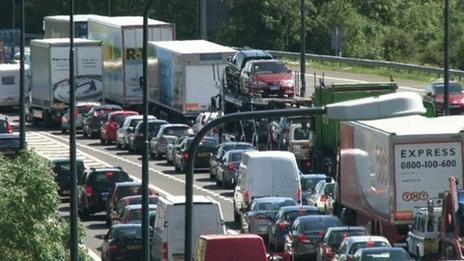Farage predicts huge UKIP surge in 2016 assembly election
- Published
Nigel Farage says the bridge tolls hurt the Welsh economy
Nigel Farage has claimed UKIP has a "real chance" of becoming the official opposition in Cardiff Bay after the 2016 assembly election.
Campaigning in south Wales, Mr Farage restated the party's pledge to scrap the Severn Bridge tolls after 2018.
The party currently has no AMs, but came third in the popular vote in Wales at the general election, with 13.6%.
Mr Farage pledged UKIP would discuss issues "people actually care about" in its assembly election campaign.
'Closed for business'
"I think UKIP in Wales have got a real chance in terms of the assembly election next year of becoming the official opposition," he said.
"And I think we will do it because we will talk about the subjects people actually care about - one of which is that it costs £6.50 to bring a car into Wales and £19.60 to bring a three-and-a-half tonne truck.
"What better message is there that Wales is closed for business?
"Yes, we will fight this campaign on big national issues, but we will also fight this campaign on specific local issues, Welsh issues, and this one, I think is a very good place to start."
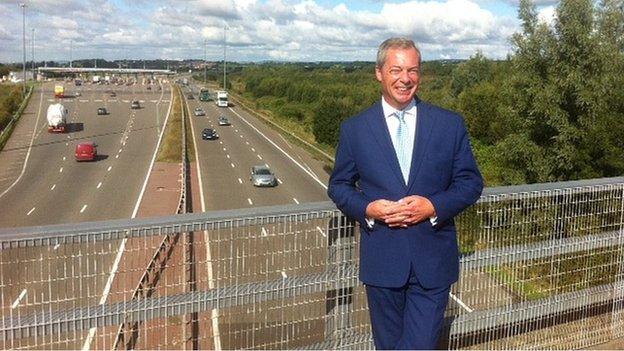
Nigel Farage hopes the tolls will be a vote-winning issue for UKIP at the assembly election
Mr Farage said the tolls should be dropped when the bridges go into public ownership in 2018, with any revenue lost to the public purse offset by opting for a cheaper version of the planned £1bn M4 relief road around Newport.
Responding, a Welsh government spokesman said: "We have declared very publicly that we believe the tolls should be in the hands of the Welsh government.
"Our intention would be to reduce the levels of the tolls, alleviating the burden on the economy - it is important that the money that the tolls raise is then applied to the effective maintenance of the crossings."
On the relief road, the spokesman added: "We have announced a preferred route for the M4 around Newport, which we believe is the best solution to transport issues in the area and is vitally important to the economic prosperity of Wales."
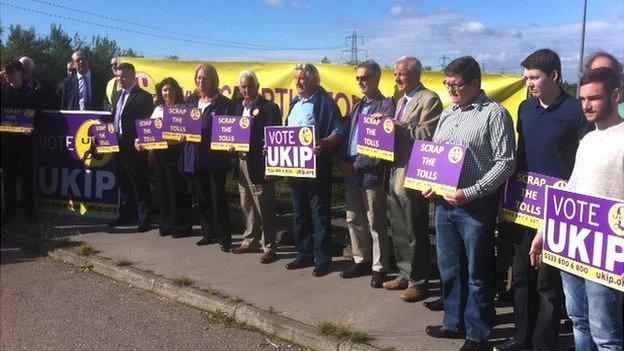
UKIP campaigners say the toll charges for motorists entering Wales are unfair
The promise to scrap the Severn Bridge tolls was previously made in UKIP's 2015 general election manifesto and also by the Liberal Democrats.
In his March budget, Chancellor George Osborne said VAT on the charges would be scrapped when the bridges return to public ownership.
Responsibility for the bridges lies with the UK government, although Labour has called for this to be devolved.
In July 2013, Welsh Labour's Finance Minister Jane Hutt told MPs that the tolls could be used to finance construction of the M4 relief road.
Meanwhile Mr Farage has also announced that UKIP will be mounting its own campaign for a vote to leave the EU in the forthcoming referendum.
He said all the elections taking place in the UK next May, including the assembly poll, would have a "massive influence put upon them" by the referendum.

Analysis by Nick Servini, BBC Wales political editor
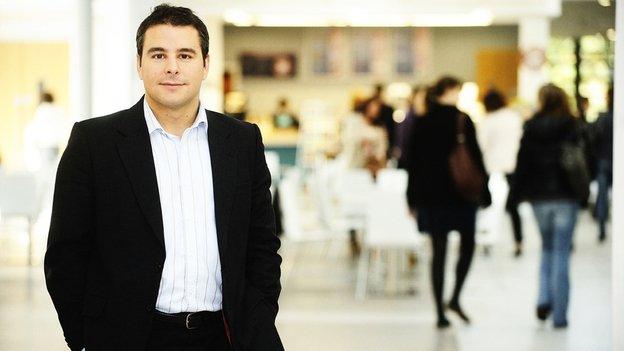
David Cameron may have decided against holding the EU referendum at the same time as the assembly election but it won't stop them being influenced hugely by the in-out vote.
That's the view of Nigel Farage, at least, who claims all of the parties will have to come to terms with voters who will take policies on Europe into account when they vote for AMs next year.
So the prospect of the UKIP leader coming to Wales over the next eight months and talking solely about devolved services like health and education is not going to happen.
Europe and immigration will be just as high-profile with the party as ever, and crucially UKIP believes policies on both can be discussed at the same time.
Even today's campaign issue on Severn Bridge tolls is not devolved, but that won't stop Nigel Farage returning to it time and time again because he believes the assembly could pressure the UK government into scrapping the charges.
- Published1 September 2015
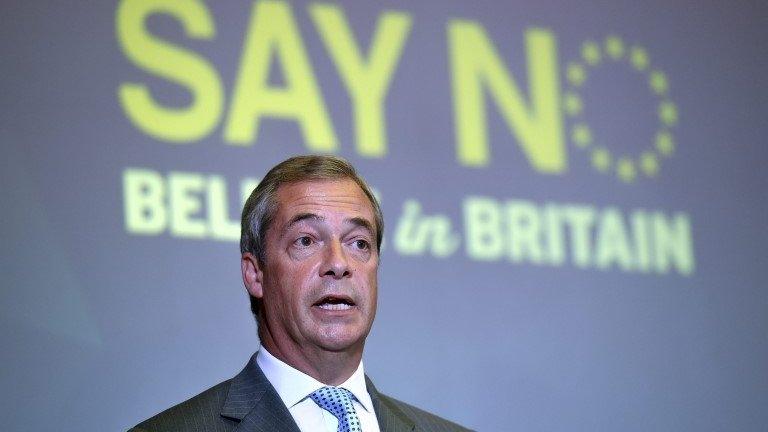
- Published23 June 2015
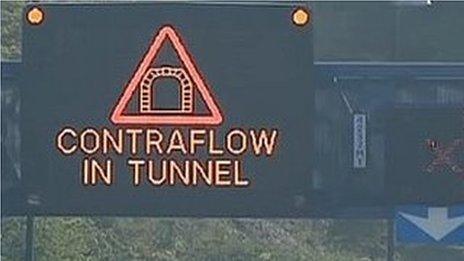
- Published17 April 2015
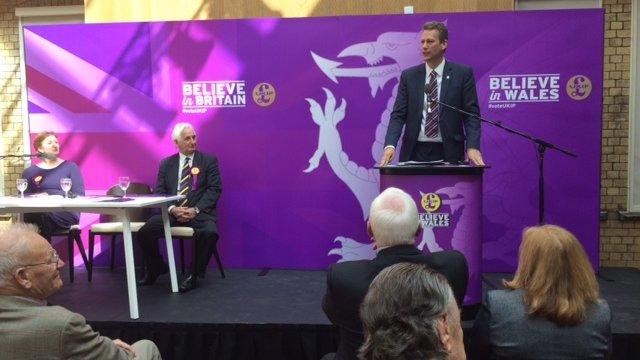
- Published19 August 2015
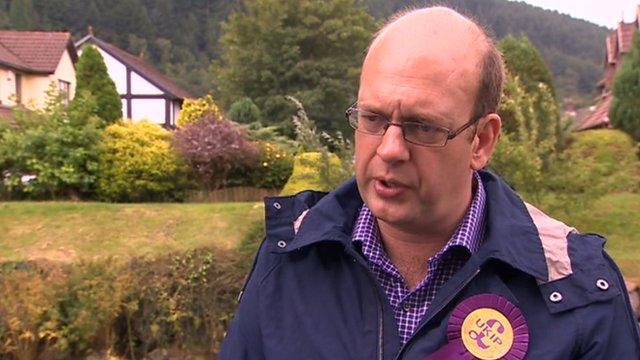
- Published4 May 2015
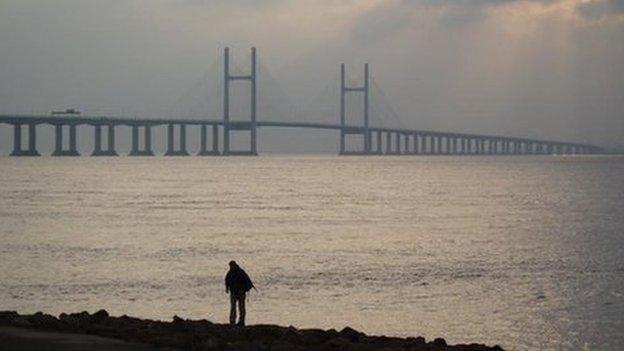
- Published18 March 2015
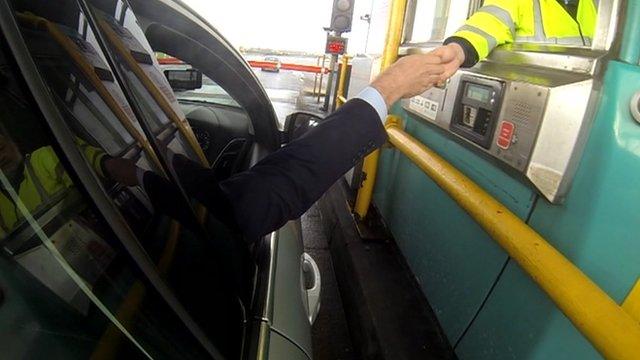
- Published1 March 2014
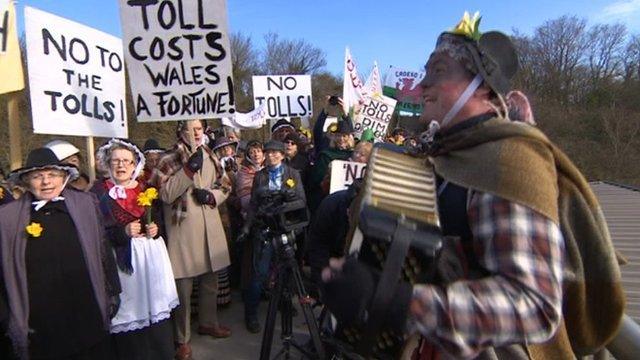
- Published11 July 2013
